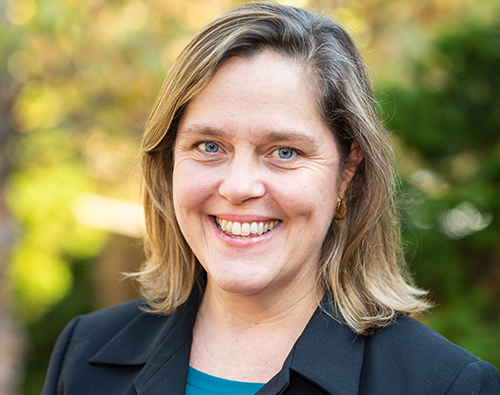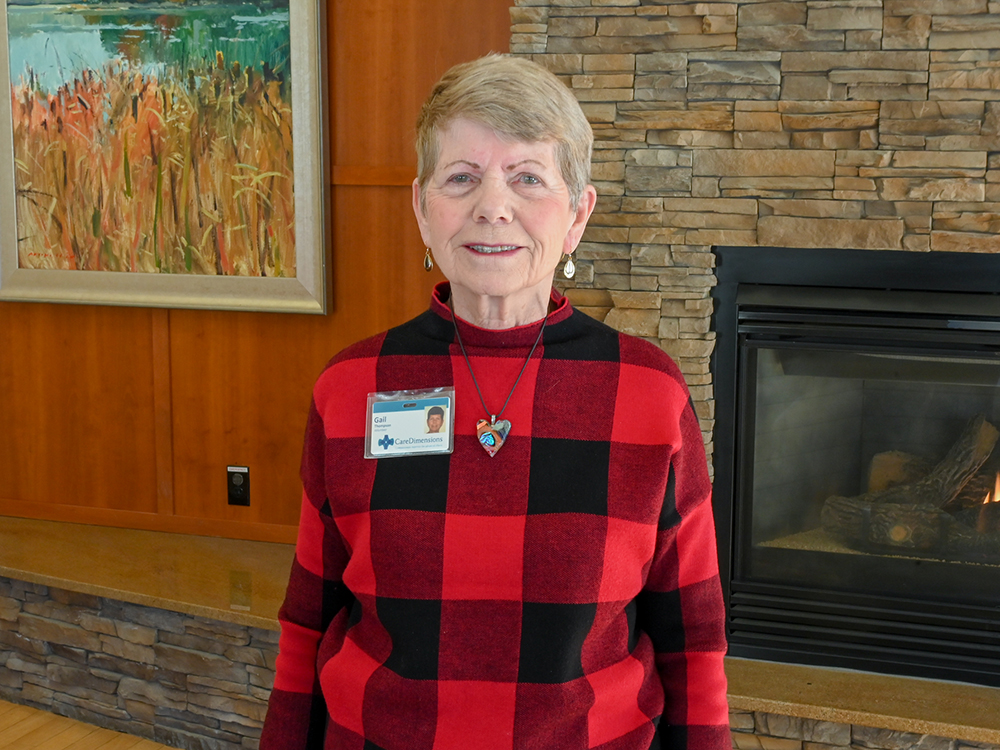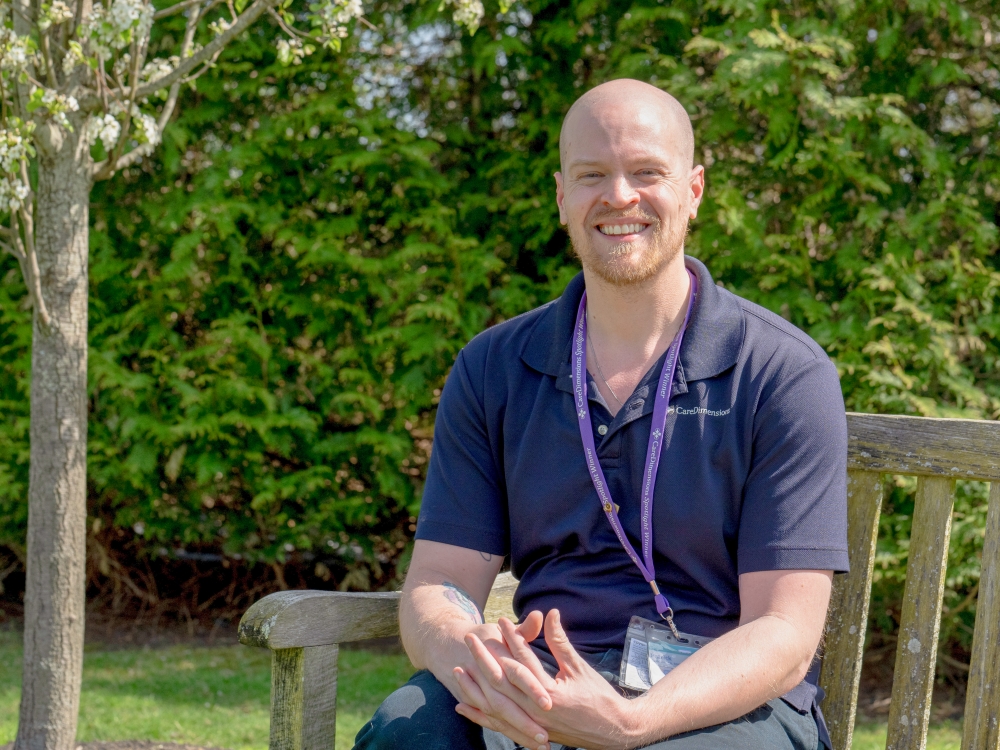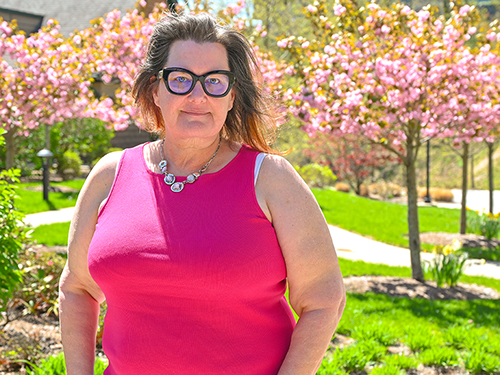How can we help?
888-283-1722
Call us now at 888-283-1722
24/7 Referrals and Nursing Support
Voices of Care Blog

Collaboration is Key When Treating the Whole Patient
Posted on March 29, 2021 by Kristen Schaefer, MD, FAAHPMIf you had a serious illness that reduced your quality of life, who would you turn to?
Many people would name their primary care doctor. Others would select their cardiologist, oncologist, or other physician they see regularly for a specific illness.
But how do you know if your doctor has the right information to help improve your quality of life by matching treatment options with your goals of care?
That’s when it can help to bring in an expert on symptom management who can also work with your doctor and you on a coordinated care plan that aligns with your goals of care. That type of physician expert is trained in hospice and palliative medicine.
Palliative care doctors know how to treat pain, fatigue, nausea, and other symptoms so patients with serious illness can have a better quality of life, often with fewer emergency room visits and hospitalizations.
(Note: Hospice physicians serve the same purpose, but for patients who are not expected to live more than six months and are no longer seeking curative treatment. Palliative care is appropriate at any age and at any stage in a serious illness, and it can be provided along with curative treatment. Compare hospice and palliative care.)
I originally trained and practiced as a primary care physician with a focus on underserved communities in San Francisco during the AIDS epidemic, then in Arizona with the Indian Health Service on the Navajo Nation, and finally in Washington, DC at a community-based women’s health center primarily for Latin American immigrants. During this time, palliative care emerged as new specialty field in medicine whose expertise and mission overlapped with mine, but I also had a lot to learn. So, I returned to Harvard Medical School where I had earned my medical degree and completed its Palliative Care Education and Practice certificate program. I have been board certified in Hospice and Palliative Medicine since 2006.
Working together
As a palliative care physician, I learned to practice symptom management and communication skills to improve the care for seriously ill patients. Most doctors have little training on how to do this, and I have found that my colleagues outside of hospice and palliative care appreciate my contribution to their patients’ care. For example, I might help treat severe pain, break ground on conversations addressing hard questions about life expectancy, or coordinate conversations about transition to hospice care.
I routinely ask my colleagues for their estimate of patient’s prognosis and likely illness trajectory, and then we think together. What does the family know? What do they need to know? What’s the best way to open a conversation? Patients and families often want to know their trusted physician’s perspective about how much time they may have but are afraid to ask.
For instance, once I was working with a cardiologist whose patient qualified for hospice, but it was hard for him to make the referral. He had known the patient for over two decades and seen him through so much. He was worried that the patient would feel he was giving up on him, and became tearful when he had to relay the news that there were no additional heart failure treatments to try. But he was able to express non-abandonment by introducing and recommending hospice care to be an extension of his care through end of life. The patient and family were grateful that he would remain in charge of the patient’s care and that he had involved an expert palliative care physician (me!) who could help with transition of care to focus less on treatment and more on comfort and quality of life.
My relationship with Care Dimensions
I also know what it’s like to be the doctor making the referral to hospice. When I worked on the Dana-Farber Cancer Institute/Brigham and Women’s Hospital Intensive Palliative Care Unit, I could call the Care Dimensions nurse liaison at the hospital about a patient who I thought was a hospice candidate and ask what how he/she envisioned the care plan. Then I could go into a room to meet with the patient and family with confidence in options we could offer. I would tell them, “The Care Dimensions nurse wants to speak with you more about how they can support you and your family.” I could also say with confidence that Care Dimensions would stay closely connected with the patient’s primary care physician or cardiologist, who would still be in charge of the care plan, but also have the back-up of hospice and palliative care doctors and nurse practitioners who were an integral part of the interdisciplinary hospice team. I could trust that Care Dimensions wasn’t going to change the care plan without telling me, and that they’d keep the patient’s primary doctor in the loop.
Team treats whole patient
Hospice and palliative care physicians are a piece of a team that’s nurse-led. We’re valued for our role and expertise, and we value that of the other team members (nurses, social workers, chaplains, aides). We embrace this interdisciplinary approach where each team member has a specialty, we work together, and we know who on the team can help at different stages of the patient’s journey.
I find this collaboration rewarding. The whole is bigger than sum of its parts, which is the right approach for treating the whole person.
More people are learning about the benefits of palliative care, and the need for doctors trained in hospice and palliative medicine is growing significantly. At Care Dimensions, we teach hospice and palliative care medical fellows how to do the work of hospice care, and we are part of a larger community of interdisciplinary palliative care educators in the Boston area. In hospice and palliative care, our aim is to build a workforce so more patients and families can have access to this care, which is particularly gratifying for me.
It’s never too soon for a person diagnosed with a serious illness to learn about care options. Care Dimensions can help you figure out where to start.
About the author
Kristen Schaefer, MD, FAAHPM, is Care Dimensions’ medical director, Greater Boston, where she oversees physicians and cares for patients in our Greater Boston service area and at the Care Dimensions Hospice House in Lincoln. She oversees the education and training of medical students, residents and fellows on rotation at Care Dimensions, and supports outreach to professional health care organizations through educational activities and relationship building.
Additional Posts
Finding Purpose in Hospice Care: My 45 Years as a Volunteer
Posted on May 16, 2025 by Gail Thompson in Hospice, Kaplan Family Hospice House, VolunteersOver the past four decades, Gail Thompson's connection to hospice has gone from personal loss to profound purpose. She shares the rewards of supporting families through life's most difficult transitions as a hospice volunteer. ...
Continue readingFinding My Niche: Life as a Hospice Nurse
Posted on May 6, 2025 by Patrick Davidson, RN Case Manager in Hospice, Hospice careersFor nurse Patrick Davidson, there's something profoundly meaningful about working in hospice. He discusses the challenges and the rewards of the profession. ...
Continue readingFor Hospice Nurse, It’s All About Teamwork
Posted on May 5, 2025 by Debbye Lindberg, RN Case Manager in Hospice, Hospice careersFor nurse Debbye Lindberg, hospice is all about teamwork. She talks about how a team approach ensures patients and families get the best care possible. ...
Continue readingAnyone—patient, family, care provider—can make a referral. Fill in the form online or call us today.
Since 1978, Care Dimensions, formerly Hospice of the North Shore, has provided comprehensive and compassionate care for individuals and families dealing with life-threatening illnesses. As the non-profit leader in advanced illness care, we offer services in over 100 communities in Massachusetts.
Copyright 2025 | Care Dimensions, 75 Sylvan Street, Suite B-102, Danvers, MA 01923 | 888-283-1722 | 978-774-7566 |









